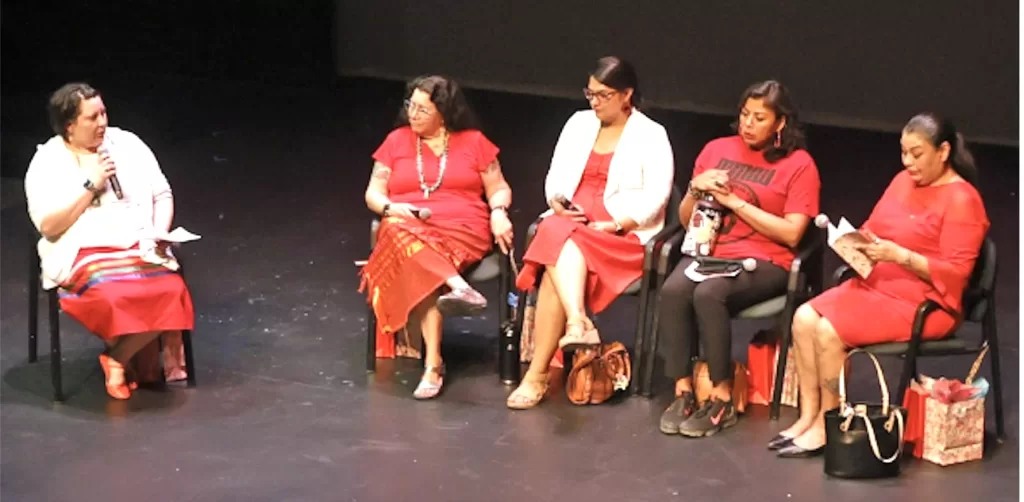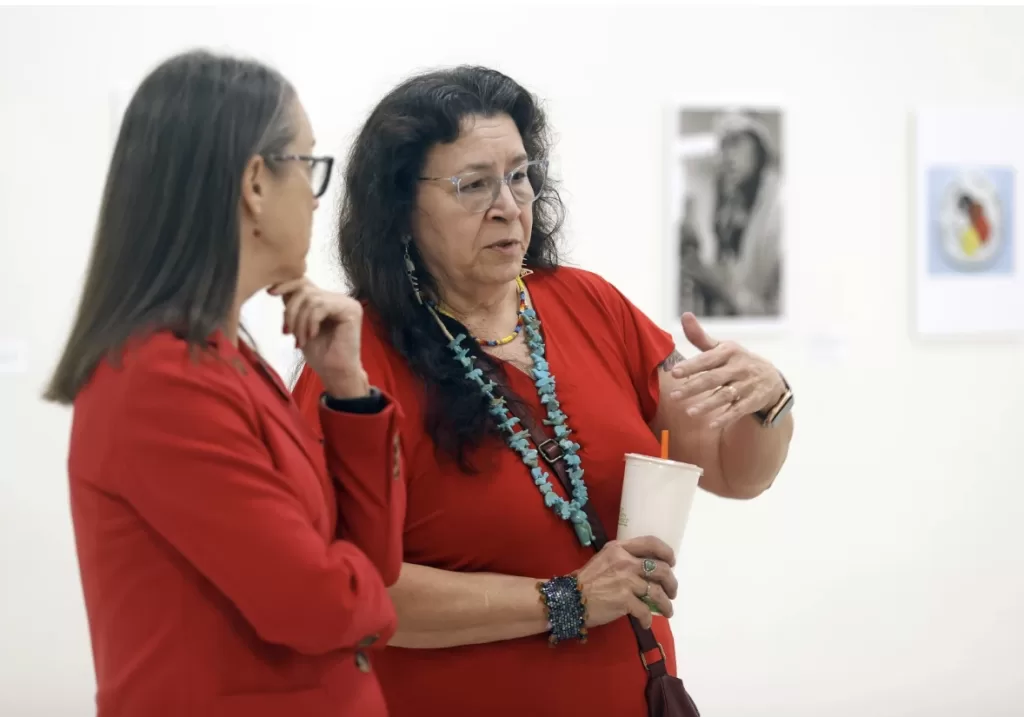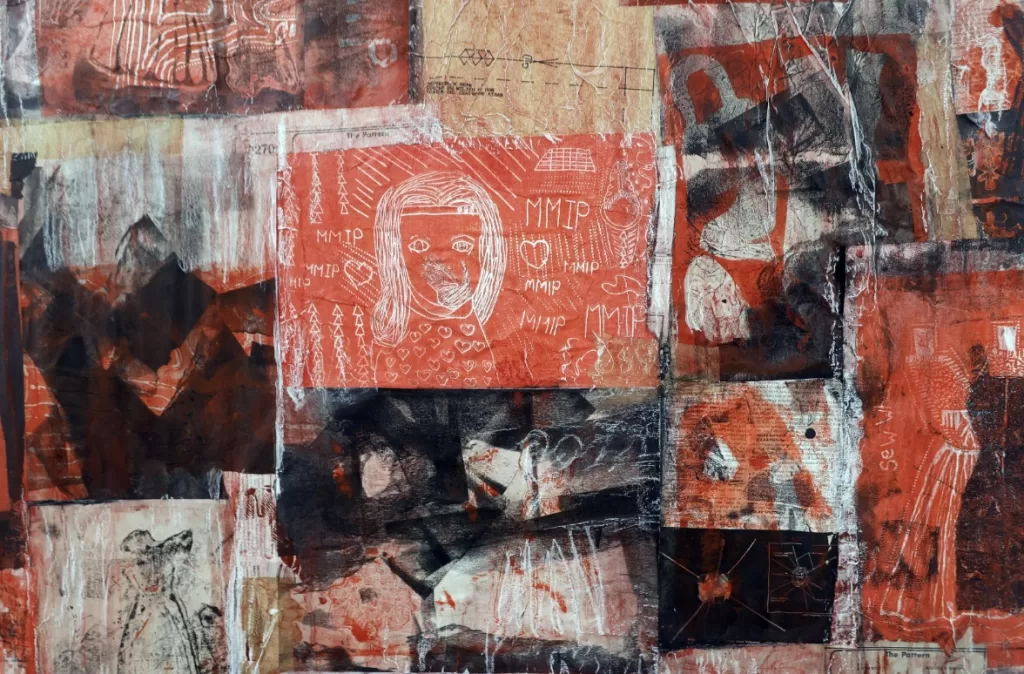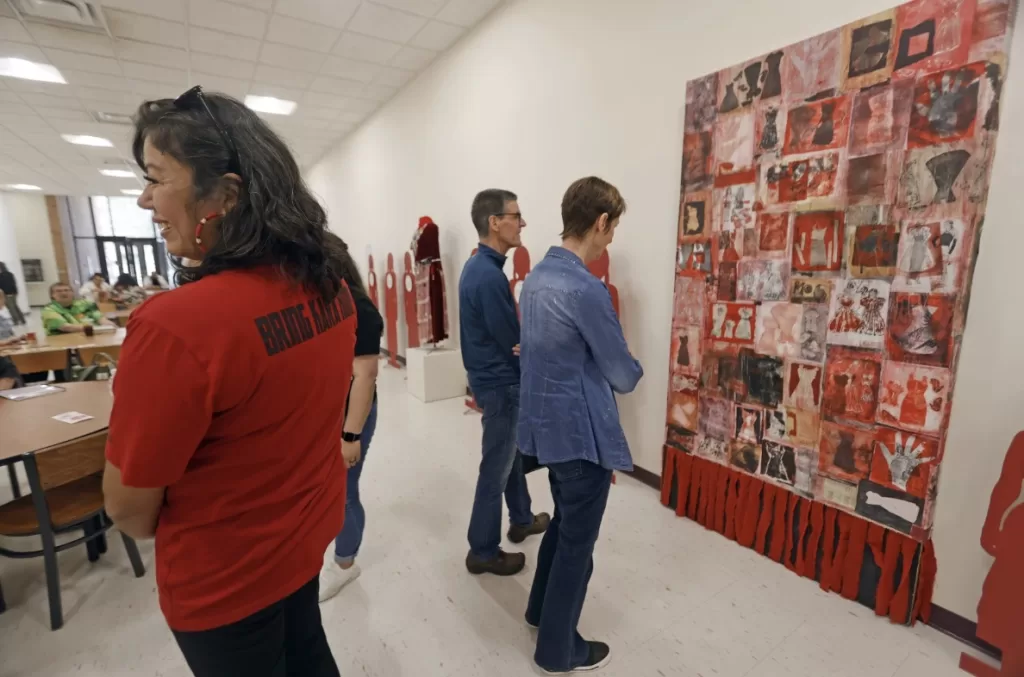
Editor’s note: This article is about a panel discussion held during Missing and Murdered Indigenous Persons Awareness Day at Minnesota State University Moorhead to bring awareness and to build together for a better world. It was originally published by author C.S. Hagen at https://www.inforum.com/news/msum-discussion-panel-tackles-issues-among-indigenous-communities/ and is republished here with permission.
“Native American and Alaska Native women are 25 times more likely to be raped or sexually assaulted than other women in the United States, and 61.4% of Native American women will be physically assaulted over their lifetime,” said panelist Laura Youngbird.
“Saving people’s lives shouldn’t be a partisan issue. Period. It should be a nonpartisan issue,” said panelist Ruth Buffalo.
“I encourage you all to continue to learn about our survival . . . so we can build together . . . and build a better world for future generations,” said panelist Tracey L. Wilkie
MINNESOTA STATE UNIV. MOORHEAD — A lot of work has been going on behind the scenes since the passing of Savanna’s Act, said a group of speakers on Friday, May 5, a day known as National Missing and Murdered Indigenous Persons Awareness Day.
Change, however, has been faster in Minnesota than in North Dakota, said Ruth Buffalo and Anne LaFrinier-Ritchie, two of the four speakers at a panel discussion at Minnesota State University Moorhead before an audience of about 60 people.
“Minnesota has been doing some cool stuff,” said LaFrinier-Ritchie, a Safe Harbor regional navigator for Someplace Safe in West Central Minnesota. The state has a task force that has begun compiling a database and is working to make hundreds of recommendations on how to stop what they call a crisis targeting Indigenous people, she added.
Savanna’s Act, which passed in 2020, aims to improve the federal response to missing or murdered Indigenous people by increasing coordination among federal, state, tribal and local law enforcement agencies, according to Indian Law Resource Center. The Act is named after Fargo resident Savanna LaFontaine-Greywind, a member of the Spirit Lake Tribe who was murdered in 2017 while eight months pregnant.
“Minnesota is night and day to North Dakota,” said Buffalo, a former North Dakota state representative. “In Minnesota it took them two tries to get their task force passed into law. We go into Minnesota looking at it like the promised land with all the good things happening there,” she said.

“Saving people’s lives shouldn’t be a partisan issue. Period. It should be a nonpartisan issue,” Buffalo said.
Panelists noted Native American and Alaska Native women and girls are still experiencing violence at extreme and unprecedented levels.
Some of the problems revolve around jurisdiction issues, delayed responses by law enforcement and racism, the panelists said.
Panelist Laura Youngbird, an artist and faculty member in Minnesota State University Moorhead’s School of Media Arts and Design, said Native American and Alaska Native women are 25 times more likely to be raped or sexually assaulted than other women in the United States, and 61.4% of Native American women will be physically assaulted over their lifetime.
Buffalo said her work with the missing and murdered Indigenous began about the time of LaFontaine-Greywind’s murder. Now, she is vice president for the National Native American Boarding School Healing Coalition’s board and an appointed commissioner to the Not Invisible Act Commission.

Having a day set aside to commemorate Missing and Murdered Indigenous People is a heavy and necessary burden, but also a step in the right direction.
“We haven’t always had a day that recognizes the crisis,” Buffalo said. “There are things happening in different levels of government that affect tribal people directly.”
While acknowledgment is good, more needs to be done, she added.
Another speaker, Tracey L. Wilkie, who serves on the board for the Protection and Advocacy for Individuals with Mental Illness, said the crisis of missing and murdered Indigenous women, men, “two-spirit people,” and children, has gone on for centuries.

“And it still happens all the time,” Wilkie said. “I encourage you all to continue to learn about our survival and what our people go through so we can build together, be better neighbors, and be good relatives to one another, and build a better world for future generations.”
Over the years, the movement changed from “Missing and Murdered Indigenous Women” to “Missing and Murdered Indigenous People,” said Youngbird. She has tried to get permission to speak about the issues in public schools, but has always been turned away, she said.
“We need to teach our young people to respect themselves and others,” Youngbird said.
C.S. Hagen is an award-winning journalist currently covering the education and activist beats mainly in North Dakota and Minnesota.
